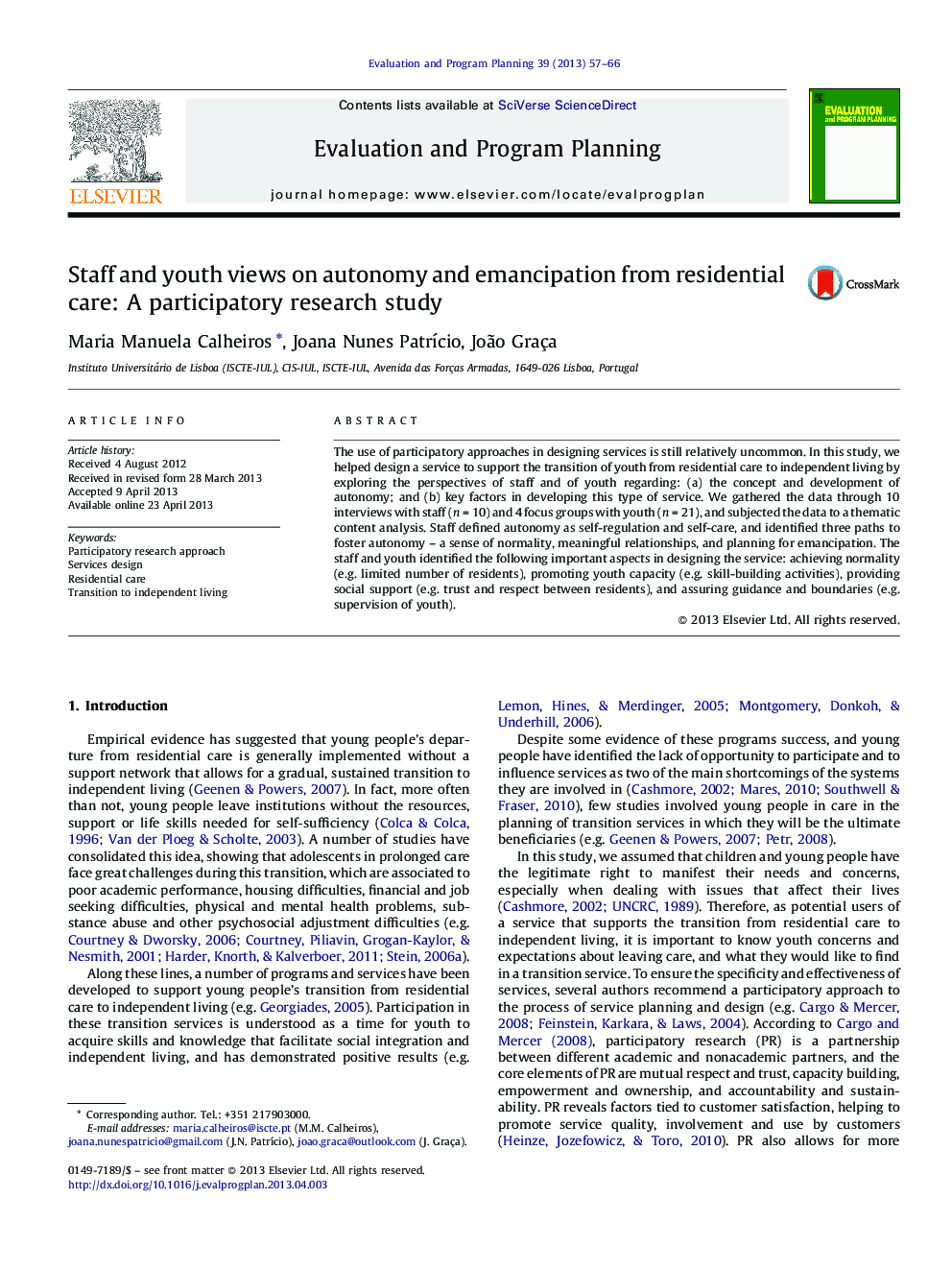| کد مقاله | کد نشریه | سال انتشار | مقاله انگلیسی | نسخه تمام متن |
|---|---|---|---|---|
| 321378 | 539790 | 2013 | 10 صفحه PDF | دانلود رایگان |

• We use participatory approaches with staff and youth in residential care.
• We explore the concept of autonomy and key factors in developing a service.
• Staff defined autonomy as self-regulation and self-care.
• The sense of normality, meaningful relationships and planning for emancipation are important to foster autonomy.
• Achieving normality and capacity, providing social support, guidance and boundaries are important aspects in designing the service.
The use of participatory approaches in designing services is still relatively uncommon. In this study, we helped design a service to support the transition of youth from residential care to independent living by exploring the perspectives of staff and of youth regarding: (a) the concept and development of autonomy; and (b) key factors in developing this type of service. We gathered the data through 10 interviews with staff (n = 10) and 4 focus groups with youth (n = 21), and subjected the data to a thematic content analysis. Staff defined autonomy as self-regulation and self-care, and identified three paths to foster autonomy – a sense of normality, meaningful relationships, and planning for emancipation. The staff and youth identified the following important aspects in designing the service: achieving normality (e.g. limited number of residents), promoting youth capacity (e.g. skill-building activities), providing social support (e.g. trust and respect between residents), and assuring guidance and boundaries (e.g. supervision of youth).
Journal: Evaluation and Program Planning - Volume 39, August 2013, Pages 57–66